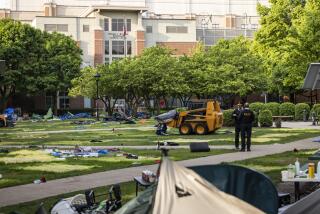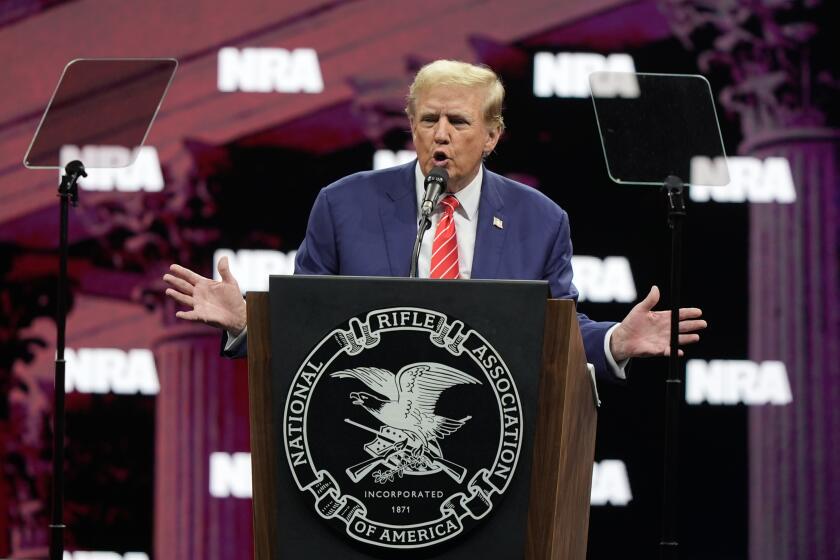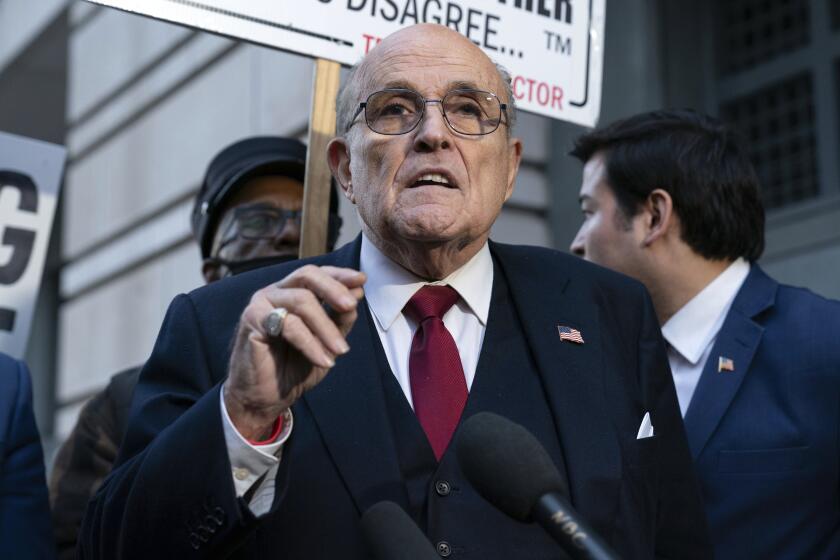Smith Committed 1988 Rape, Attempted 2 Others, Florida Prosecutor Contends
William Kennedy Smith, nephew of Sen. Edward M. Kennedy (D-Mass.), committed a rape in Washington in 1988 and attempted two others here and in New York, the prosecutor in a Florida rape case against him, contended Monday.
Moira K. Lasch, the prosecutor, said in a court filing that she will call the three women involved as witnesses in Smith’s trial which is set to begin Aug. 5.
Lasch notified the court of her intention to call the women under Florida rules allowing use of evidence of crimes similar to those on which a defendant is to be tried.
Smith, 30, is accused of raping a 29-year-old Jupiter, Fla., woman at the Kennedy family’s Palm Beach estate last Easter weekend, after she drove him back to the beachfront estate from a nightclub where he had gone with Kennedy and Kennedy’s son, Patrick.
Smith has pleaded innocent and denounced her charges as “damnable lies.”
The latest allegations, if supported, could change the complexion of the case dramatically.
Florida lawyers defending Smith did not respond to requests for comment. But Paul Donovan, Kennedy’s press secretary, said that the senator “continues to believe that, when this case is decided, Willie will be found innocent.”
Lasch’s court papers are the first indication that Smith ever had been accused or convicted of sexual battery--Florida’s term for rape--before the current case came to light. No record of the accusations or the alleged offense was found in a search of court files.
Names of the alleged victims were included in Monday’s court papers but The Times policy does not permit publication of the names of such individuals. The allegations of earlier offenses included actions similar to those with which Smith is charged in Florida, where he allegedly raped the victim after tackling her when she attempted to leave the estate grounds.
None of the women could be reached for comment.
The case in which Smith “did commit a sexual battery” took place between May 1 and June 30, 1988, in the District of Columbia and involved “a person 12 years of age or older,” according to the court filing. Smith was said to have “used physical force and violence not likely to cause serious personal injury” in committing the sexual act.
Around the same time period--between April 1 and June 30, 1988--Smith allegedly attempted a sexual battery on another woman here by grabbing her, throwing her down and forcibly restraining her, the court papers said. In this case, he failed to complete the act “or was intercepted or prevented” from doing so, Lasch said.
At the time of the 1988 incidents, Smith was a student at Georgetown University Medical School, from which he was graduated recently.
In an earlier incident in New York--between June 1 and Aug. 30, 1983, Smith allegedly attempted to rape a woman by “tackling (her), forcibly restraining her and fondling her.” But he failed “or was intercepted or prevented” from carrying out the offense, the court papers said.
At that time, Smith was an undergraduate at Duke University in Durham, N.C.
Eric Seiff, attorney for the New York woman involved in the 1983 incident, said that his client is willing to testify but declined to disclose any details of the incident. He said: “We’re so close to trial and the defendant is entitled to his day in court.”
He said that there are no court or other public records that would detail his client’s allegations.
In her court filing, Lasch also said that she intends to call as a witness Matthew Maxwell Kennedy, Smith’s 26-year-old cousin and son of the late Sen. Robert F. Kennedy.
NEXT STEP
It will be up to Circuit Court Judge Mary Lupo, the judge in the case, to decide whether testimony about the new allegations is admissible. Florida law provides that “similar fact evidence of other crimes, wrongs or acts is admissible when relevant to prove a material fact in issue,” such as intent. It allows the incidents to be cited even if they were not reported to police at the time. However, the law provides, such evidence cannot be used against a defendant “solely to prove bad character or propensity.”
More to Read
Start your day right
Sign up for Essential California for news, features and recommendations from the L.A. Times and beyond in your inbox six days a week.
You may occasionally receive promotional content from the Los Angeles Times.







